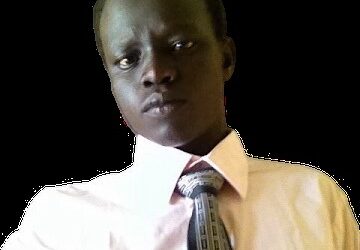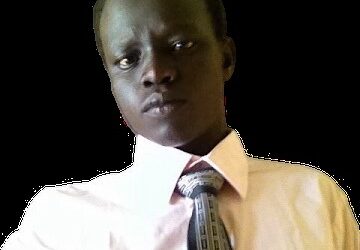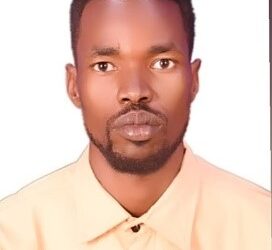By Ustaz Mark Bang
This lovely ancient proverb from Vietnam reminds us of something we all already know: the importance of feeling deep gratitude for the good people and the good fortune in our lives, no matter how large or small.
We are living in uncertain and unsettling times. And to survive and thrive, we need calm, we need strength, we need conviction, we need resilience, and I believe we need gratitude. Because no one does this alone. Hopefully there are, in all of our lives, ordinary and extraordinary blessings that we choose to appreciate and embrace—for some of us we have children or grandchildren or parents or siblings or a beloved dog or cat who need our love and attention and give us countless blessings. .For others it may be a job that demands our passion and persistence, or a cause or mission that drives us.
For most of us, we have had people in our past or present for whom we are deeply grateful, people who are there for us when times get tough when we need to talk, and when just hearing their voice, just hearing the pure hello on the phone, is enough to lift our spirits.
I want to share with you some of my favorite words and poems from people I admire so much about gratitude, resilience, and the inner light of every human being.
Albert Schweitzer was an extraordinary human being: a medical doctor and surgeon, an author, a man of the cloth, and the winner of the Nobel Peace Prize in 1952. I love his quote on gratitude—I repeat it all the time: “At times, our own light goes out and is rekindled by a spark from another person.”
Each of us has cause to think with deep gratitude of those who have lightened the flame within us.” One underlying message of gratitude is that we should appreciate whatever gift comes our way, be it grand or modest. Happiness comes from acceptance.
I’ve come to acknowledge that it’s most definitely okay to be human. And by being human, I mean to be imperfect. To be inadequate and scarred. To be inefficient and to fail. Because humans do not exist to be perfect. We make mistakes. We hurt. We fall into a pit of despair and struggle. But we learn from it all. We came out bleeding and scarred, but never weak.
I’ve acknowledged that I’m scarred for life, and that has made me stronger. I’ve acknowledged that I’ve failed miserably, and that has made me wiser. I’ve acknowledged that people dislike me for the most petty reasons, and that has made me love myself harder.
Life is imperfect and full of drudgery and broken dreams, but I’ve acknowledged to myself that as a mere imperfect human being, I always have the power, however insignificant it may seem, to make life better.
Out of all the people on the planet, you can only read one mind. Yours. You spend more time with you, your ideas, your motivations, your likes, and your dislikes than anyone else you will ever know.
You know the things you deny to yourself and that you bury deeply so that no one else will see. You know all the skeletons in your closets. By name. If you don’t know what to do, it is far more likely that you do actually have ideas of things you would like to do, but you are burying them under layers of denial. Years of someone telling you that you would never be a firefighter.
The loss of a limb crushing your dream of being a long-distance runner, dreaming of being a computer programmer (that one is kind of crushing on its own). Belief is a powerful thing.
We can “believe” ourselves out of doing just about anything. When you don’t believe you can’t or shouldn’t do something, you can keep yourself from doing it. Knowing oneself doesn’t mean being hedonistic. It doesn’t mean just reacting to any want or desire that pops into the skull. It does mean acknowledging things you have an affinity for. You know what you like.
Do you like food? Can you cook? Do you cook often? Do you cook well? What if you could cook interesting food all the time and get paid? You’d be doing something you like, surrounded by stuff you like, making a living, and being comfortable and content as a baseline for your life.
If that sounds awesome, it is because it is. That’s knowing oneself. Our bodies react to provide boosts when we need to be active and aware. All of these boosts are temporary.
We naturally return to a more passive, comfortable, and calm state. If we maintain a state of boosted awareness for too long (amped up on adrenaline, avoiding sleep for days), we can damage our bodies. So it seems that to know oneself really involves being able to return to that calm, passive state at will, because you know what you think and feel when you are in that state, and you know yourself well enough to recall what to think and feel to get back to that state.
That’s where you might want to start looking. When you are awake, calm, and comfortable. What are you doing? What are the things that you like that brought you to the place where you are calm and comfortable? People can sit in a room and not be comfortable for a number of reasons.
The decor, the color of the walls, the amount of light (or lack of it), the kind of furniture, the entertainment room- lack of it), there are a lot of factors that go into what makes that place where you are at a level baseline state the place to analyze. When you’ve identified a few of those things that make it “your” place, you can explore those topics.
Why do you like that color? What variations? Do you only like it on stuff, as opposed to clothes? How long have you liked this kind of music? Do you always watch movies? My collection has absolutely no horror.
Think of a martial artist. Think of Bruce Lee. Be like water. Soft and yielding one moment, pounding down in a destructive torrent the next. You need to know your physical and mental limits to be able to go from being as soft and flexible as a pillow to springing into action like a steel spring.
To get there they train and train, and meditate, and ponder, and eat right, and train, rinse, and repeat. To Bruce Lee, martial arts wasn’t a hobby or a job. It was a lifestyle. It was as regular and as integral as breathing. This is a question where your answers are all inside of you.
You just have to actually read and pay attention to them. What are you looking to do with the knowledge? There needs to be a day when all one does is reflect on desire for the future, and the same thing will happen to you perfectly. We are supposed to know who does all that we see. God created everything and us, and we must acknowledge these things. Leaders are elected, and they also must know who made them to be so. Thanks for reading. “Public Staunchest Ally”
The writer of this article is a human rights activist, writer, and professional teacher.




